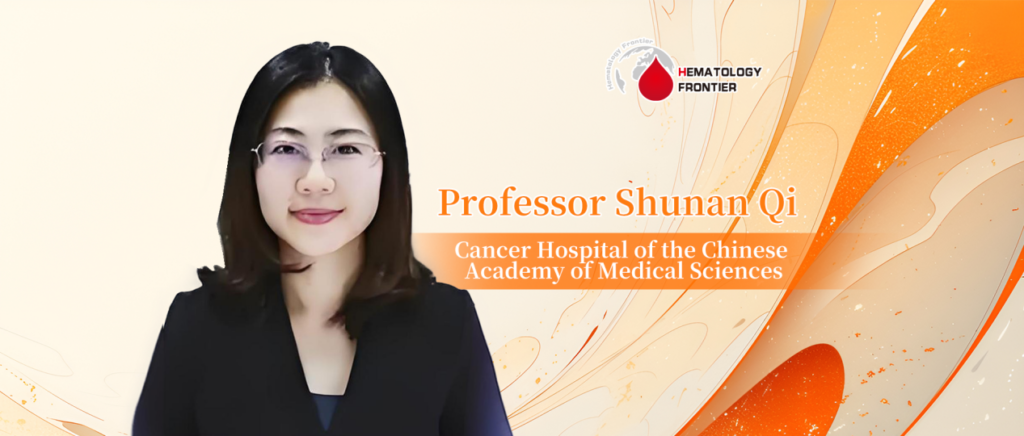
Editor’s Note: With the rapid development of medical technology, modern lymphoma treatment has become a key focus in the field of oncology. From May 25 to 26, the Modern Lymphoma Treatment Academic Conference and the 5th International Lymphoma Radiation Oncology Group (ILROG) Continuing Education Annual Meeting were successfully held online. The conference featured thematic speeches, in-depth case analyses, and scientific experience exchanges, covering various subtypes including Hodgkin lymphoma, diffuse large B-cell lymphoma, indolent lymphoma, extranodal lymphoma, plasma cell myeloma, and more. Core topics focused on the application of high-tech, optimization strategies for radiation therapy, new treatment methods, precise classification, and diagnostic techniques, providing participants with valuable insights into the latest advancements and future trends in the field. Notably, the conference brought together many internationally renowned experts who provided in-depth analyses and interpretations of lymphoma guidelines, evidence-based medicine, and clinical practice, offering excellent academic references. Professor Shunan Qi from the Cancer Hospital of the Chinese Academy of Medical Sciences, representing the organizing unit of this conference, gave an exclusive interview to "Oncology Frontier - Hematology Frontier" to provide a detailed interpretation of the conference's exciting content and advancements.Oncology Frontier – Hematology Frontier: The International Lymphoma Radiation Oncology Group (ILROG) has a significant influence in the field of lymphoma. As a member of the ILROG Steering Committee, how do you view the role and contributions of this organization in lymphoma treatment and research?
Professor Shunan Qi: ILROG was officially established in 2010, co-initiated by Dr. Joachim Yahalom from Memorial Sloan Kettering Cancer Center (MSKCC) and Dr. Lena Specht from the University of Copenhagen, Denmark. It brings together many top experts in the field of radiation therapy worldwide, representing the highest academic standards in lymphoma radiation therapy. From its inception, Professor Li Yexiong from the Cancer Hospital of the Chinese Academy of Medical Sciences has been a member of the collaborative group, participating in its establishment and showcasing China’s professional strength and academic influence on the international stage.
ILROG has carried out numerous leading academic activities in the field of lymphoma radiation therapy and comprehensive treatment. Firstly, ILROG is dedicated to developing highly authoritative guidelines and therapeutic recommendations, systematically categorizing and interpreting issues encountered in lymphoma radiation therapy using evidence-based medicine. Especially in the area of radiation target delineation and design, ILROG has produced numerous atlases that provide highly instructive references for clinical practice. These guidelines are published in internationally authoritative medical journals and are listed as required reading materials for resident training abroad. Secondly, ILROG regularly hosts ILROG annual meetings and other educational conferences, carefully designing topics and incorporating the latest research findings, providing a comprehensive and multi-faceted learning platform for professionals.
Moreover, ILROG demonstrates strong driving force in scientific research cooperation. Based on in-depth interpretation and analysis of existing evidence, experts actively explore current research gaps and strive to undertake new research projects to fill these gaps, promoting multi-level, in-depth academic cooperation globally. In the future, ILROG will also conduct a series of prospective studies to facilitate continuous progress and development in the discipline.
As I have grown from a young committee member to a standing member of the steering committee, I have witnessed the significant enhancement of China’s position and influence in ILROG. The remarkable achievements of the Chinese team in lymphoma research, particularly in NK/T-cell lymphoma and indolent lymphoma, have earned widespread acclaim from the international community, propelling China to a leading position in the field.
As an important member of ILROG, China not only bears the responsibility of introducing international frontier perspectives and the latest academic achievements to domestic application but also carries the mission of showcasing Chinese experiences to the world and leading global lymphoma treatment research.
ILROG, as an influential international organization, has played a pivotal role in the development of lymphoma treatment and research. The successful holding of this conference fully demonstrated ILROG’s core role in advancing lymphoma treatment technology and promoting international academic exchange and cooperation. With China’s continuous development and contribution in the field of lymphoma research, we have every reason to believe that the global lymphoma treatment field will embrace a brighter future.


